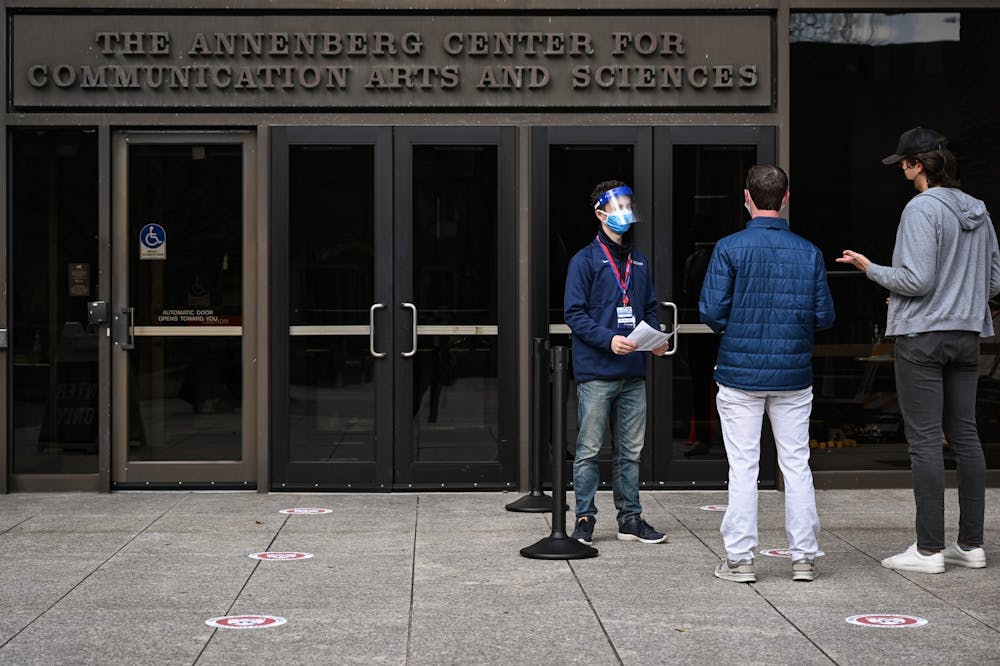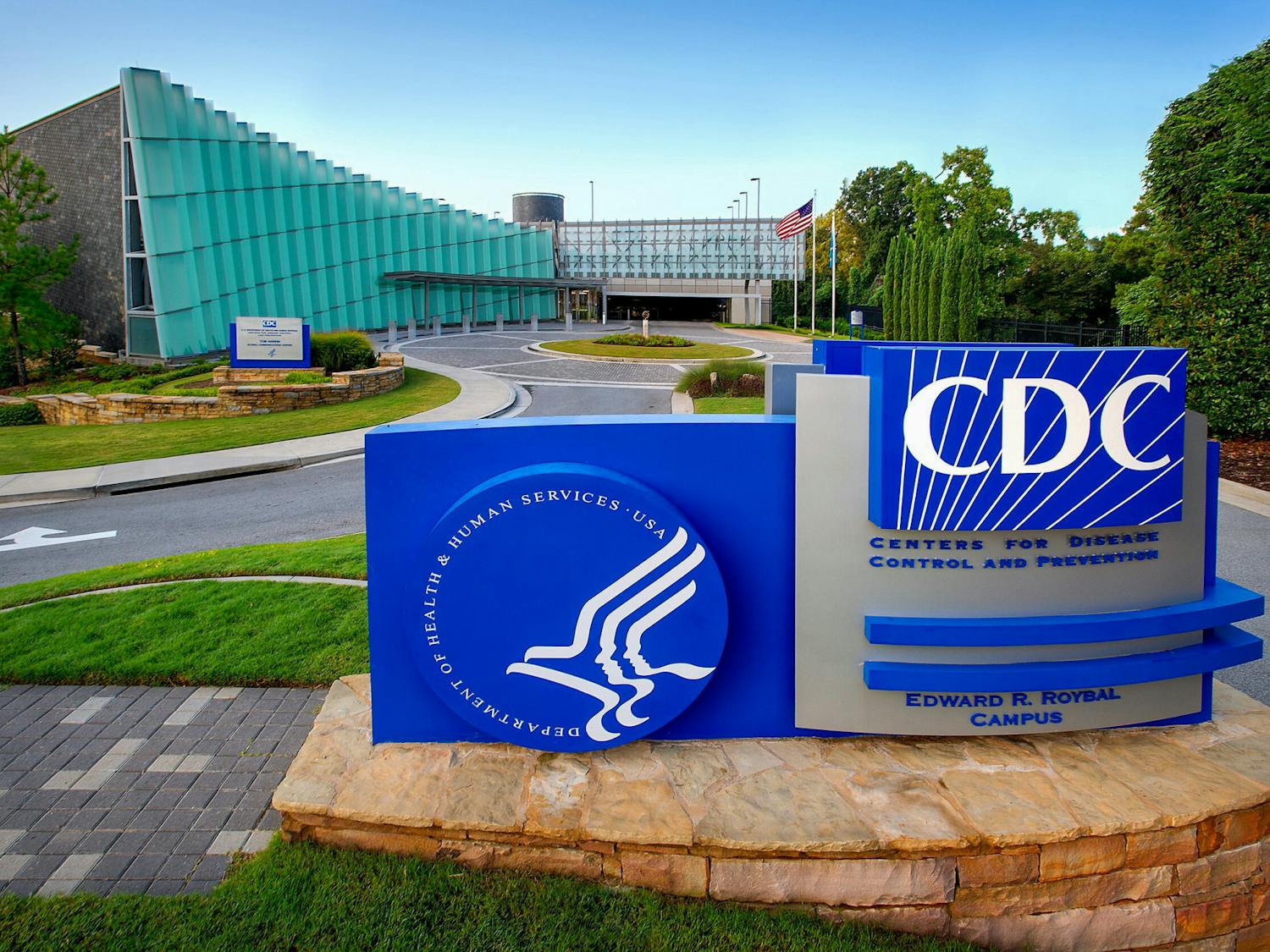Penn will remain at Campus Alert Level Two: Heightened Awareness this week, after "worrisome trends" in previous weeks' COVID-19 positivity rates subsided.
The University sent a message to the Penn community on Feb. 5 threatening a shift to Alert Level Three: Safer at Home on its four-level alert system, which guides the University's policies depending on the severity of the pandemic in the area. Chief Wellness Officer Benoit Dubé told The Daily Pennsylvanian on Feb. 16 that the worrisome trends previously noticed "were not sustained, and there is no need to impose new restrictions this week."
Dubé emphasized that, while the lower positivity rate is encouraging news, it does not signify that members of the Penn community should be complacent in adhering to COVID-19 public health guidelines and regular testing.
Penn administered 16,743 total COVID-19 tests between Feb. 7 and Feb. 13, with a total positive headcount of 139 cases and an overall positivity rate of 1.07%.
The University also administered a total of 289 tests for symptomatic individuals and individuals who had close contact with someone who tested positive for COVID-19. These tests accounted for 37 positive tests, for a 13.81% positivity rate.
After doubling for two straight weeks, Penn saw its case count decrease from 242 to 101 among undergraduates between Feb 7. and Feb. 13 as compared to the previous week, lowering the undergraduate positivity rate from 4.47% to 1.84%. The available on-campus isolation capacity also increased to 70.3% from Feb. 7 to Feb. 13, up from 56.9% during the week of Jan. 31 to Feb. 6.
On Feb. 9, Dubé explained to the DP that Penn would experience one of two scenarios: a continuation of the doubling of undergraduate cases or a plateau in the number of undergraduate cases. The University experienced the latter of the two scenarios, allowing for the campus to remain at Alert Level Two, which requires the Penn community to continue following public health guidelines under heightened vigilance.
Under Alert Level Three, students would have to quarantine in their place of residence, with all classes conducted remotely and all public gatherings banned regardless of size.
RELATED:
Students in isolation report inadequate resources and communication from Penn
After weeks of denying access, Penn will offer COVID-19 testing to Bon Appétit dining workers
"The lower rates this week allowed us to breathe a sigh of relief," Dubé said. "It should not, however, give us permission to become complacent."
Dubé added that the presence of variant strains of COVID-19 on campus serves as a reminder for students to be more vigilant — not less. At least two students have tested positive for the B.1.1.7 COVID-19 variant, a more contagious form of COVID-19, since arriving on campus in the past five weeks.
Undergraduates living on and off campus are required to schedule saliva-based screening tests twice a week on pre-assigned days. Graduate students and faculty living on campus must schedule screening tests twice a week on days of their choice, and off-campus graduate students and faculty who visit campus must be tested once a week.









